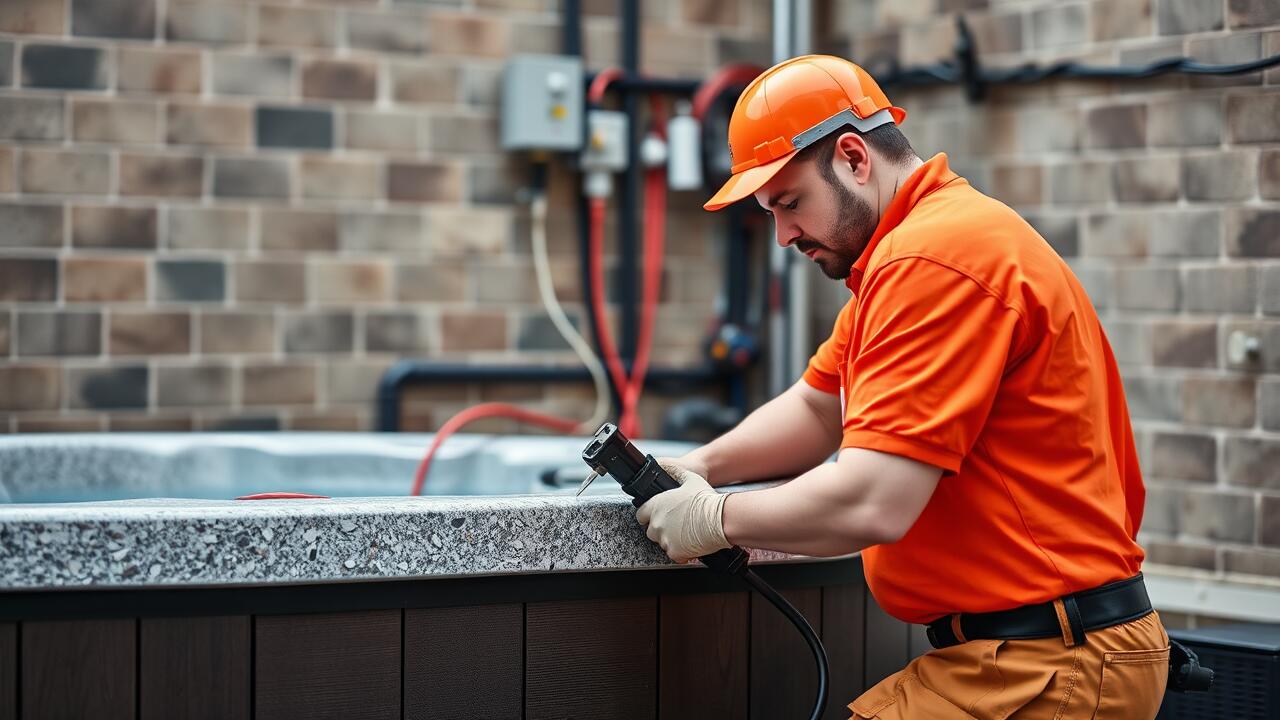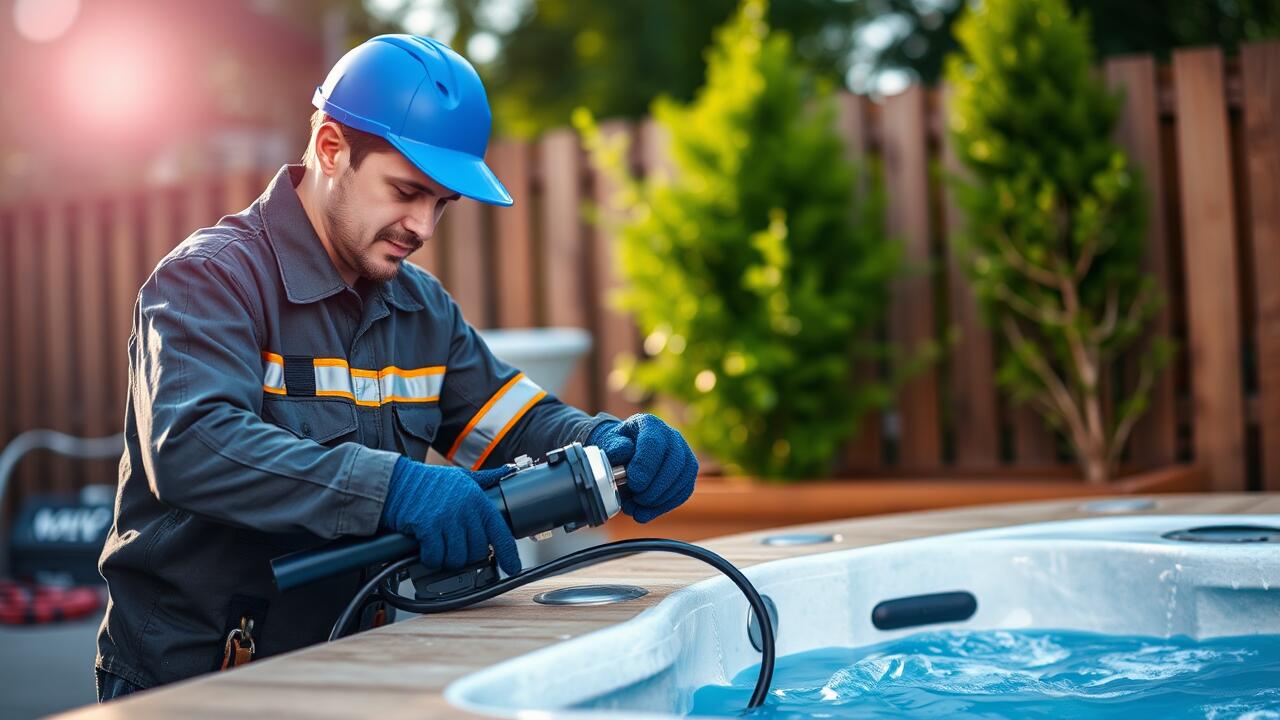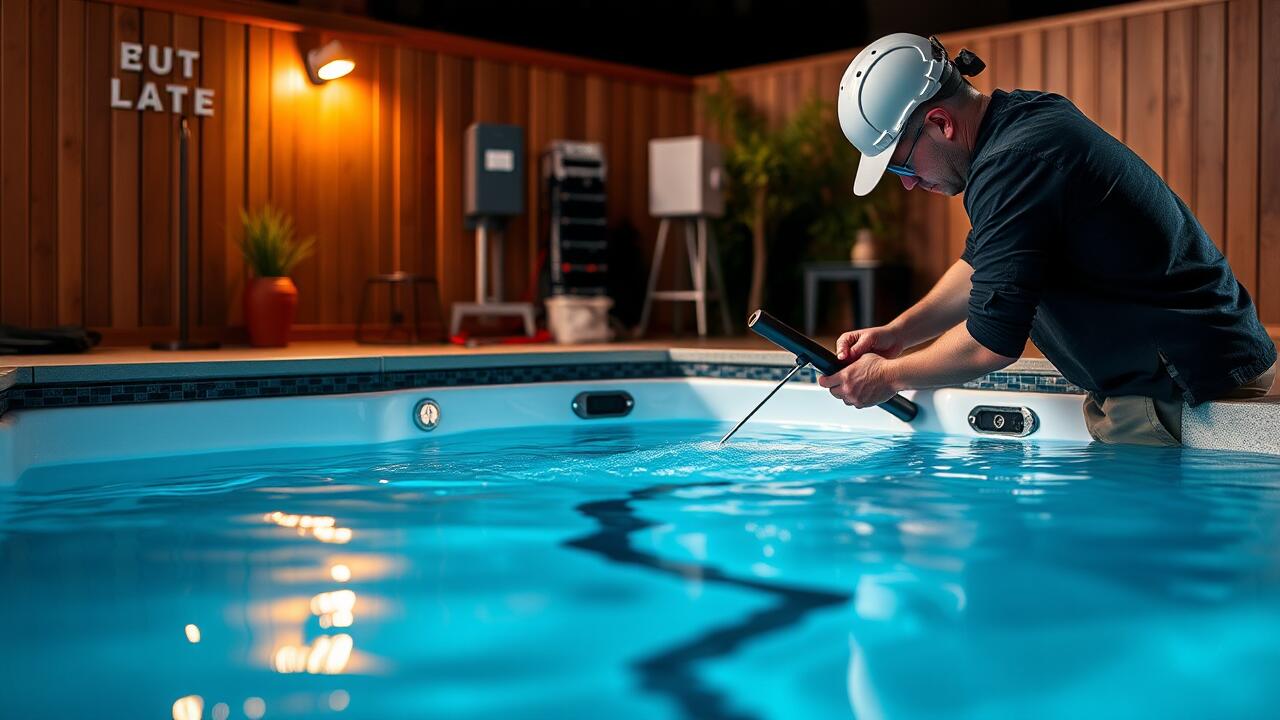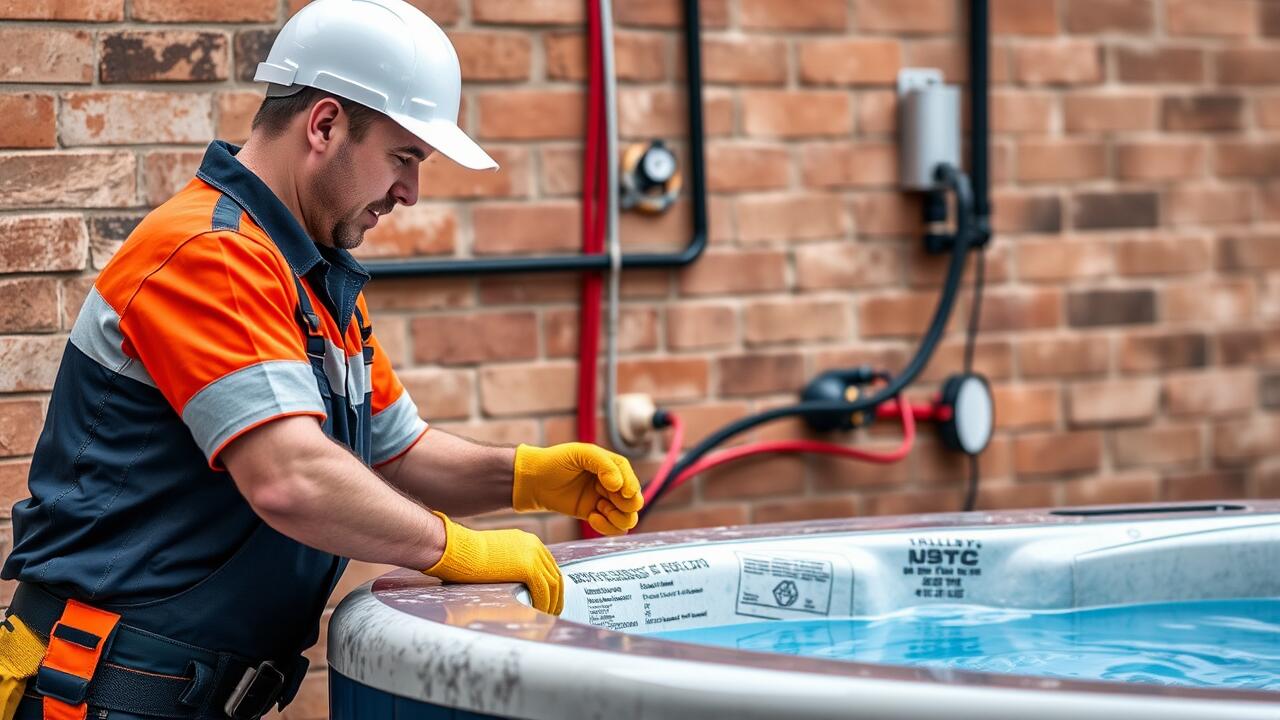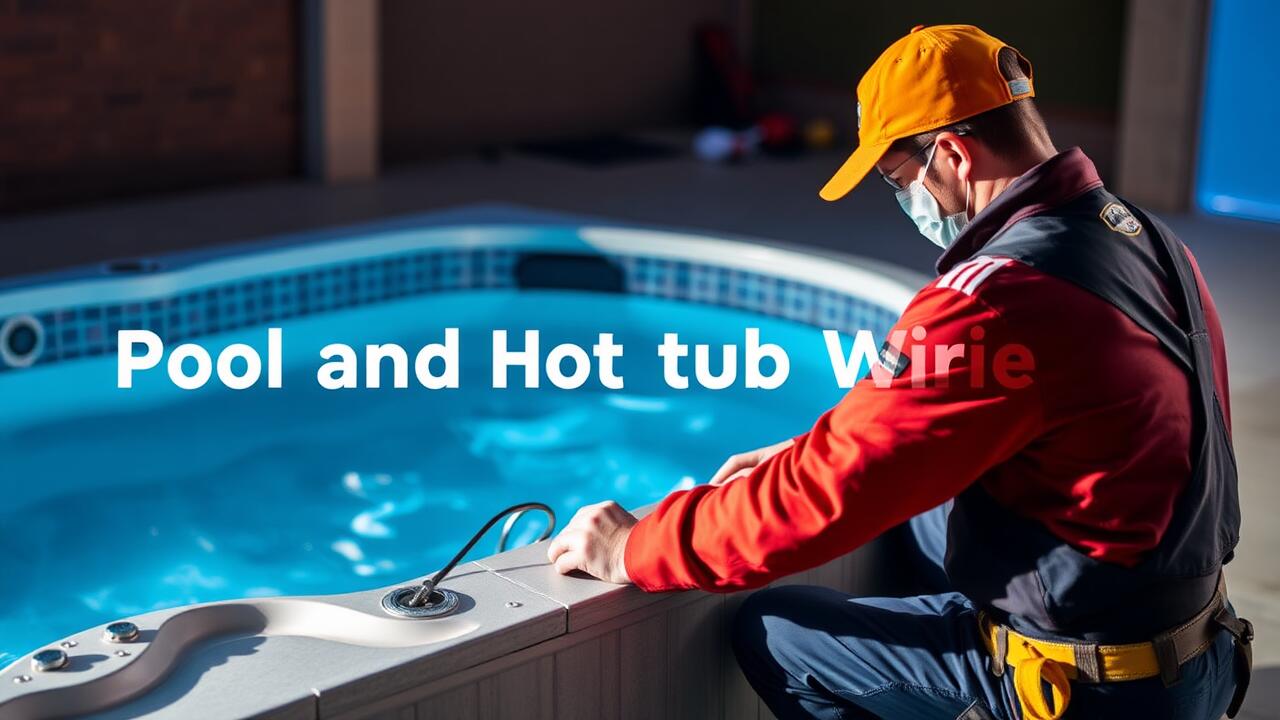
GFCI Protection for Hot Tubs
Ground Fault Circuit Interrupters (GFCIs) play a critical role in enhancing the safety of hot tubs. These devices are designed to detect imbalances in electrical current and rapidly cut off power to prevent potential electrical shock. For hot tubs, proper GFCI protection is essential given the proximity of water and electricity. Installing GFCIs is not only a recommendation; it is often required by electrical codes. They should be specifically rated for outdoor use and correctly installed to ensure they function effectively in wet environments.
Pool and Hot Tub Wiring in Westchase, Houston, underscores the importance of adhering to local electrical codes regarding GFCI installation. Homeowners should prioritize safety by having licensed electricians evaluate their hot tub setup, ensuring appropriate GFCI placement. Regular testing of GFCIs is vital to confirm they are operational. This proactive approach can help mitigate risks associated with electric shock and make hot tub enjoyment a safer experience for everyone involved.
How Ground Fault Circuit Interrupters Work
Ground Fault Circuit Interrupters (GFCIs) are essential safety devices designed to protect against electrical shock by monitoring the flow of electricity. They constantly compare the amount of current flowing through the hot and neutral wires. If there is a discrepancy, such as when electricity escapes through an unintended path like water or a person, the GFCI quickly cuts off the power supply within milliseconds, significantly reducing the risk of severe injury or electrocution.
Proper installation of GFCIs is crucial, especially in areas like Pool and Hot Tub Wiring in Westchase, Houston. Local regulations often mandate their use in wet locations to enhance safety. This requirement underscores the importance of having GFCIs installed regardless of whether the hot tub is indoors or outdoors. Ensuring GFCIs are functioning correctly should be a priority for homeowners to maintain a safe and enjoyable environment for users.
Avoiding Common Installation Mistakes
Proper installation of a hot tub requires attention to detail to avoid common mistakes that can lead to safety hazards. One frequent oversight is improper placement of the electrical connections, which can expose wiring to moisture and increase the risk of shock. Ensuring that connections are adequately protected and out of direct exposure to water is crucial. Additionally, underestimating the importance of planning the layout can result in excessive strain on wires or insufficient access for future maintenance.
When it comes to Pool and Hot Tub Wiring in West University Place, Houston, adhering to safety standards is essential. Often, homeowners neglect to verify grounding and bonding requirements before installation. These elements are vital for reducing the risk of electric shock and ensuring the hot tub operates effectively. Failing to read the manufacturer's instructions thoroughly can lead to subpar installations. Maintaining a checklist of installation requirements specific to the local area can help mitigate these risks and enhance safety.
Identifying and Correcting Safety Hazards
Identifying safety hazards in the installation of hot tubs is essential for preventing accidents and ensuring proper function. Common issues include improperly grounded systems, exposed wiring, and inadequate spacing from overhead lines. All electrical components should be inspected to confirm they comply with local safety standards. Regular checks can reveal wear and tear, which can lead to potential short circuits or shock hazards if not addressed promptly.
Correcting these hazards often requires professional assistance, especially when it comes to complex wiring systems. Homeowners should prioritize hiring licensed electricians familiar with the specific requirements for Pool and Hot Tub Wiring in Third Ward, Houston. These experts can assess the installation for compliance with safety codes and make necessary adjustments. Taking proactive measures can significantly reduce risks associated with electrical systems in hot tubs, leading to a safer environment for users.
Local Codes and Regulations
Local codes and regulations play a crucial role in ensuring the safe installation of hot tubs. Different regions may have specific requirements that aim to address safety, wiring, and structural considerations. Homeowners should familiarize themselves with local ordinances to ensure compliance and avoid potential legal issues. In some areas, additional inspections may be required, particularly for electrical installations that pertain to wet environments.
In Westchase, Houston, regulations can vary, making it essential for residents to seek out detailed information on the local standards for Pool and Hot Tub Wiring. Consulting with licensed electricians who are knowledgeable about state-specific safety codes can prevent costly mistakes. These professionals can help navigate the intricacies of local requirements, ensuring that installations adhere to the highest safety standards while providing peace of mind for hot tub owners.
Importance of Checking State-Specific Requirements
Before installing a hot tub, homeowners must verify compliance with local codes and regulations, as these can vary significantly by state and municipality. Many states have specific requirements governing electrical installations for safety reasons. Neglecting to check these codes can lead to costly mistakes, potential hazards, and issues with insurance claims should an accident occur.
In areas like Westchase, Houston, Pool and Hot Tub Wiring in Westchase, Houston, showcases a range of regulations that homeowners should follow. Familiarizing oneself with state-specific requirements ensures not only safety but also aligns with best practices for hot tub installation. Consulting with local authorities or licensed electricians can provide clarity on these regulations and help in making informed decisions about safe installation practices.
FAQS
What is GFCI protection and why is it important for hot tubs?
GFCI, or Ground Fault Circuit Interrupter, protection is essential for hot tubs as it helps prevent electrical shock by cutting off power when it detects a ground fault. This safety feature is crucial because hot tubs are often used in wet environments where the risk of electrical accidents is higher.
How do I know if my hot tub is properly installed according to safety standards?
To ensure your hot tub is installed according to safety standards, check for proper GFCI protection, confirm that all electrical connections are secure, and verify that the installation meets local codes and regulations. It’s also advisable to have a licensed electrician inspect the installation if you have any concerns.
What are some common installation mistakes with hot tubs?
Common installation mistakes include not using GFCI protection, improper grounding, inadequate clearance around the hot tub, and using extension cords instead of permanent wiring. These errors can pose significant safety hazards.
Why is it important to check local codes and regulations before installing a hot tub?
Checking local codes and regulations is important because they may have specific requirements for electrical installations, including hot tub placements, wiring methods, and safety features. Compliance ensures safety and may also be necessary for insurance and property value considerations.
What should I do if I identify a safety hazard with my hot tub's electrical system?
If you identify a safety hazard, such as frayed wires or a malfunctioning GFCI, you should immediately disconnect power to the hot tub and consult a licensed electrician. Prompt action can prevent electrical shock and potential fire hazards.
